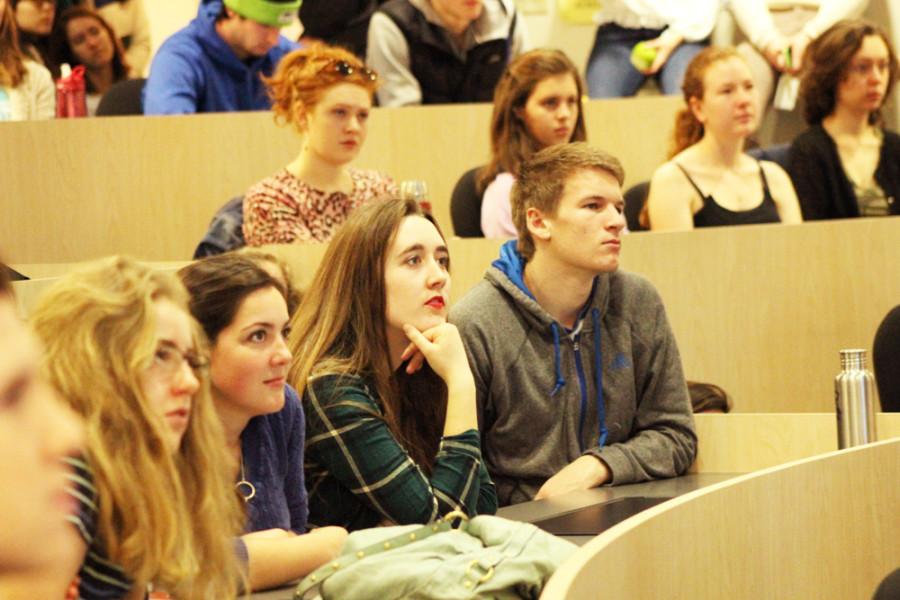Diversity has dominated campus discussion recently. This year’s Power and Privilege Symposium occurred on Feb. 19, and the new Whitman College Inclusion, Diversity and Equity Council held its second-ever meeting on Feb. 23.
The Power and Privilege Symposium, established last year in the wake of student protests, once again received praise from many sources for its attendance numbers and in-depth discussions of key issues of race, sex, gender identity, sexuality and socioeconomic class, among other topics.
“I was pretty amazed. A lot of people attended, so that was really cool. There were a lot of good [sessions] that sparked good discussions,” said sophomore Sean Hannah.
Attendance over the four sessions of the symposium totaled 2,876 participants, according to numbers provided by the Office of Student Activities, where individuals attending more than one session were counted more than once. While this total is a slight improvement in attendance over last year, it was the content of the 2015 Symposium that drew positive remarks from members of the community.
“In all [the] sessions that I went to, what I saw was this seriousness, the commitment and the dedication to critically engage the questions of what Whitman can become and to try and narrow the gap between our ideals … and our lived reality. I think it was amazing. It tells us that these questions are important, that students of all races, types, classes, sexual orientation, religious faith, region and nationality care deeply about these issues and that they’re willing to work at it,” said Associate Dean for Intercultural Affairs and Chief Diversity Officer Kazi Joshua.
Questions about Whitman’s diversity ideals are a strong focus of the WIDE Council. A committee composed of 18 members who meet once a month, the WIDE Council will have subcommittees focus on topics such as access and success, climate and intergroup relations, education and scholarship, and institutional viability and leadership commitment. Although only two meetings have occurred this year, the WIDE Council already has a vision of two initial goals that they hope to achieve.
“There are two very important charges that the committee is initially engaged in. The first business will be to secure an independent social scientist to conduct what is called a ‘climate study’ of experiences of various constituents on campus … Second, [the goal] is to design a strategic plan that maps out where Whitman should be in five years in these areas of inclusion, diversity and equity,” said Joshua, who is co-chair of the WIDE Council.
With regard to the first goal, Dr. Sue Rankin is scheduled to come to Whitman in early April and conduct an 18-month social climate study that the WIDE Council hopes will give them information regarding campus diversity. In terms of the second focus, members of the council are currently at the stage of reading previous reports on campus and gathering information that applies to providing opportunities to those in higher education in general.
“If higher [education] is also a filter that’s denying opportunity to people, then … that filter needs to be taken down, dismantled and thrown away so that –– inasmuch as it’s possible –– we have equality of opportunity. So we want to look at institution barriers to equality of opportunity not only at Whitman, but as it trickles out into the broader society so that we are not an agent of perpetuating the status quo, we are an agent of improving opportunity,” said Professor of Mathematics and WIDE Council member Albert Schueller.
[portfolio_slideshow]






